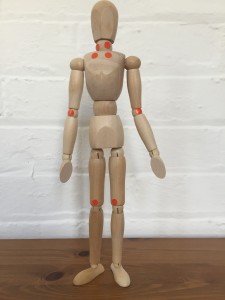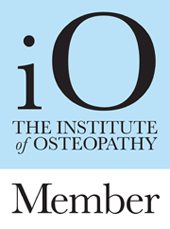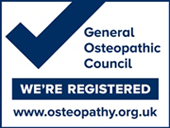Osetopathy & Fibromyalgia
Fibromyalgia Syndrome (FMS)
Fibromyalgia is a rheumatic disorder characterised by chronic muscular pain (tender points) that have no obvious physical cause. As yet, there are no tests to diagnose FMS with complete certainty and it is often misdiagnosed as Multiple Sclerosis or Parkinson’s Disease.
Symptoms
As well as widespread pain, symptoms of fibromyalgia may often include:
- Heightened sensitivity to pain
- Muscle stiffness
- Fatigue
- Insomnia
- Affected memory and concentration
- Headaches and migraines
- Irritable Bowel Syndrome (IBS)
Causes
Symptoms may be triggered by a number of different factors including over-exertion, stress, lack of exercise, depression, lack of sleep, grief, trauma, extremes of temperature and/or humidity and infectious illness.
Although fibromyalgia can occur in people at any age, the condition typically develops between the ages of 30 & 50 years old.
It is much more common in females than males.
Osteopathy
How can osteopathy help to treat fibromyalgia?
Gentle osteopathic treatment, in conjunction with nutrition advice and medication, can help to relieve the symptoms of fibromyalgia. Soft tissue massage, trigger point therapy, joint articulation, dry needling and taping are a number of the techniques often applied with regular feedback from the patient attained.
Tailored to the individual needs of each patient, osteopaths aim to ease many of the symptoms of fibromyalgia, with particular success in helping to reduce the effects of fatigue, headaches and chronic muscle pain. In addition, we aim to increase a patient’s flexibility, range of movement at affected joints and to relieve joint pain.
Nutrition
Eat a well-balanced diet to include fresh fruit and vegetables – including ‘live’ juices, wholegrains, nuts and seeds. Important nutrients that renew energy and build immunity.
- Pomegranates and/or pomegranate juice if packed full of anti-inflammatory compounds and antioxidants.
- Avoid high purine foods (those containing high levels of uric acid) e.g. red meat (especially organ meat such as liver), certain fish (especially shell fish) and yeast.
- Avoid foods from the nightshade family e.g. bell-peppers, tomatoes, white potatoes and aubergine.
- Try and limit consumption of stimulants e.g. caffeine, alcohol and also sugar
- Following a moderate exercise programme (government guidelines recommend 5 x 30 minutes of moderate pulse raising exercise weekly).
- Aim to get sufficient rest – approximately 8 hours of sleep per night (where possible)
- Soaking in a hot bath or steam rooms and saunas may help to relax muscles. (Add 2 cups of Epsom bath salts [containing magnesium – known as nature’s tranquilizer] to hot bath water and soak for 20-minutes twice a week).
Supplements
It is always advised to consult a medical practitioner prior to embarking on any supplement programme. Supplements that may impact positively on the symptoms of FMS include:
- Magnesium
- Beneficial bacteria
- B Vitamin complex
- Vitamin C
- Fish-oil supplement (containing EPA/DHA)
- Multivitamin and mineral complex
Contact Us
Woburn Osteopaths have lots of experience in diagnosing and treating fibromyalgia syndrome. We offer suitable and effective hands-on treatment techniques to identify tender points around the body, helping to ease the pain and discomfort associated with fibromyalgia sufferers. Book online today or call us on 01525 290615 to book an appointment.




